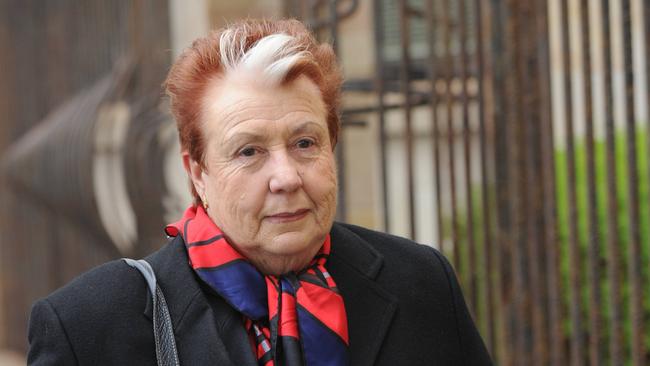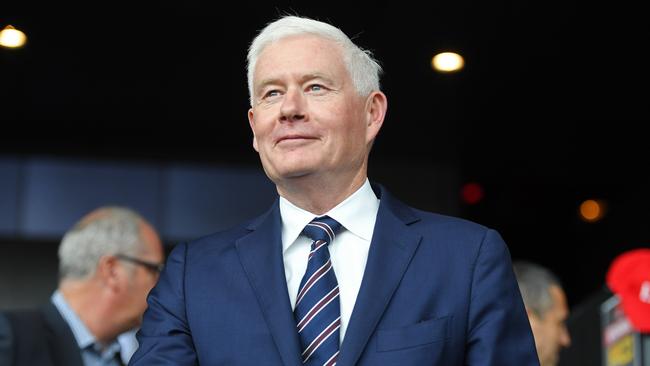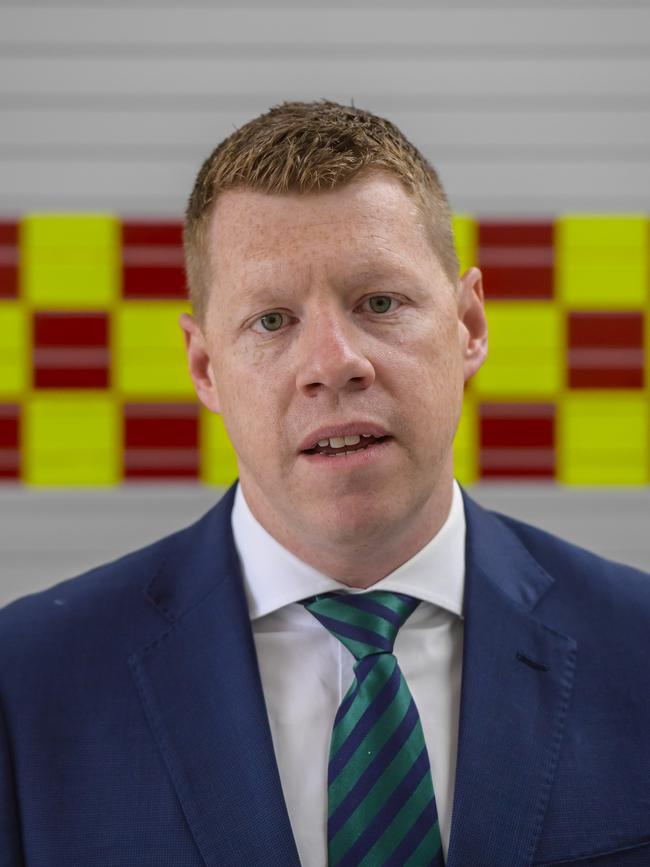South Australian Parole Board’s ‘crippling’ workload prompts plea for more resources
A huge increase in the number of violent criminals being released into the community has prompted SA Parole Board chief to plead for more resources to manage crippling workloads.
SA News
Don't miss out on the headlines from SA News. Followed categories will be added to My News.
South Australia’s Parole Board is buckling under crippling workloads that are placing its staff under extreme pressure and stress.
Presiding member Frances Nelson KC said the Parole Board secretariat urgently required another two employees to help manage around 140 “high risk’’ violent criminals in the community on Extended Supervision Orders.
Ms Nelson said because of their nature “the stakes are very high’’ in ensuring the 140 convicted violent criminals complied with their orders and she was conscious of the fact Parole Board staff were “very much under pressure’’.
“They do a very good job, they work efficiently and are very conscientious and they have to be to make sure there are no mistakes, that someone isn’t released when they should not be or ensuring that an arrest warrant is issued in a timely manner,’’ she said.

Ms Nelson, who has been presiding member for the past 39 years, said the board’s
workload was now “extreme’’ with a record number of hearings and interviews with prisoners being held to ensure their suitability for release or remain in the community after breaching conditions and significantly more work within the secretariat managing other cases.
Last financial year the board conducted 126 meetings and interviewed 1,134 prisoners – a 10 per cent increase over the previous year. In addition the board supervises 137 offenders subject to supervision under Section 269 mental health provisions and reviews the progress of hundreds prisoners serving life and indeterminate sentences.
Senior members – all of whom have other full-time professions – are also on call 24 hours a day to issue arrest warrants for parolees who breach conditions and are also called upon to compile reports for Supreme Court Justices and the Crown Solicitor’s office in relation to people before the courts awaiting sentencing and other matters.
“The number of discretionary releases has increased because of changes in the legislation. Very few people get automatic release on parole now, but significantly the Extended Supervision Orders have increased the workload of the board,’’ Ms Nelson said.
“In Victoria there is a separate Board to deal with ESO’s, but here the board supervises parolees, people who have been declared not guilty because they are mentally impaired, people released on license who are high risk sexual offenders and people on ESO’s.’’
Ms Nelson said when former Attorney-General John Rau introduced the high risk offenders legislation in 2015 he had told her he thought “there may be about 30 a year.’’

In its first year of operation 16 convicted offenders were placed on an ESO after completing their prison sentence and any parole period. Last financial year 124 new ESO’s were ordered by the Supreme Court.
Those subject to an ESO are either violent offenders, serious sexual offenders or have been convicted of terrorism offences. An ESO remains in force for a designated period and typically involves supervision and other conditions to manage each individual’s transition back into the community.
“At any one time we now have about 140 people being managed on an ESO, but we were not given any extra resources to deal with that increase’’ Ms Nelson said.
“They are quite labour intensive, we have the equivalent of one and a half full time people in the secretariat who do nothing else but deal with high risk offenders and that depletes the resources we have for the other areas for which we are responsible.
“They are extremely difficult to manage. They are dangerous, that’s why they attract the high risk offenders definition.’’

Last financial year the Board issued and executed 189 warrants for the arrest of offenders suspected of breaching their ESO conditions, compared with 164 the previous year.
“Because they are high risk, they do relapse a lot. We have a lot of interviews with prisoners who have breached their conditions. We don’t have the power to punish them or sanction them, we either release them or we refer them back to the Supreme Court and request a continuing order,’’ she said.
Ms Nelson said besides another two staff in the secretariat another full-time board member with legal qualifications was needed.
“That would enable more meetings to be scheduled to ease the current workload and take the pressure off,’’ she said.
“I don’t think people appreciate just how much it takes out of you. When you have a long meeting and are dealing with difficult people who can be sometimes aggressive, sometimes psychotic, it is exhausting.’’
Correctional Services Minister Joe Szakacs said: “While I haven’t had a specific request from Ms Nelson or the Parole Board regarding specific funding requests, I’m always committed to working closely to support the Parole Board’s important work.”




